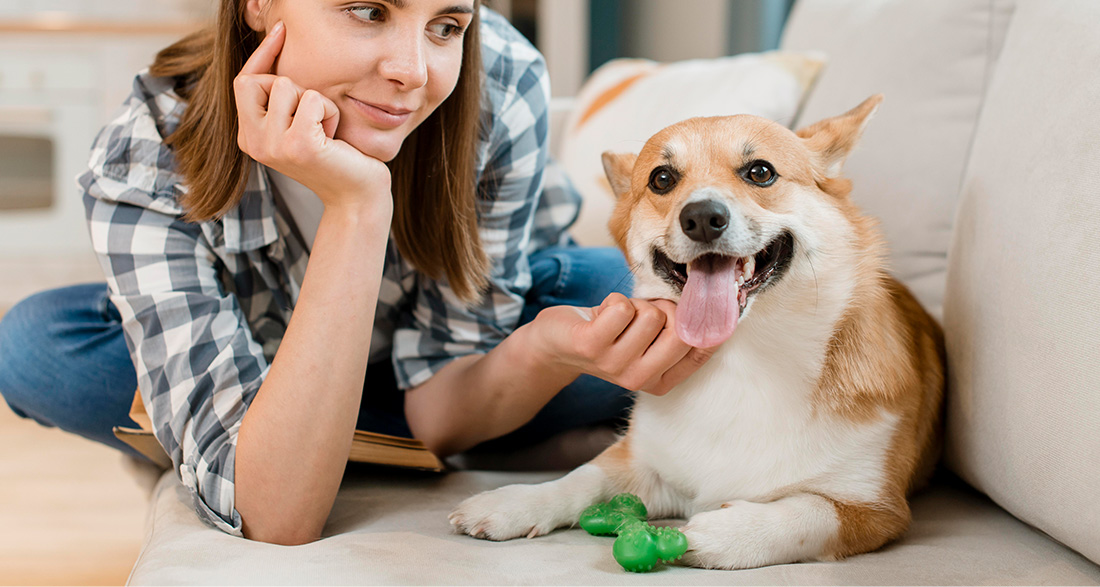For some, he is a partner and loyal companion, for others, he completes family happiness: a dog. But before you bring a four-legged friend into your life, you should honestly ask yourself some questions. During the coronavirus pandemic, many Americans have acquired a dog. Much time at home, no upcoming travels, and the desire for some company or variety in everyday life prompted more people than usual to bring a dog into their lives.
From the beginning of the pandemic, numerous animal welfare organizations warned against acquiring animals as a “pandemic project” thoughtlessly and casually on the internet or from breeders. Overwhelm, the incompatibility of the animal with daily life, or the fact that the animal does not “function” as expected would soon lead pet owners to return their “new acquisition” to the shelter or, in the worst case, even abandon them.
The feared wave of relinquishing “pandemic pets” is now emerging. While most animal shelters were able to place many of their animals in good homes during the pandemic, the pendulum is now swinging in the other direction. First shelters are already announcing a halt to admissions. “The current development makes us look to the future with concern,” says Schröder, President of the Animal Welfare Federation. “Although shelters have so far only sporadically struggled with increased surrenders, they expect a flood of new admissions in the coming time. Capacities could eventually be exhausted.”
The animals being returned are rarely puppies from breeders or former shelter animals – as the primary goal for shelters is to find a suitable “forever home.” The criteria for future pet owners are strict. Instead, animals being relinquished to shelters are mainly those acquired via the internet and from unscrupulous dealers abroad.
During the pandemic, illegal puppy trade experienced an upswing as demand far exceeded the supply. This is now leading, as feared at the beginning of the pandemic, to overcrowded animal shelters in some places.
So, if you’re thinking about getting a dog, you should ask yourself some important questions and answer them honestly. If the answers are “yes,” then there’s nothing standing in the way of getting a dog. However, if the answer to many questions is “no,” you should reconsider the plan to get a dog.
Commitment
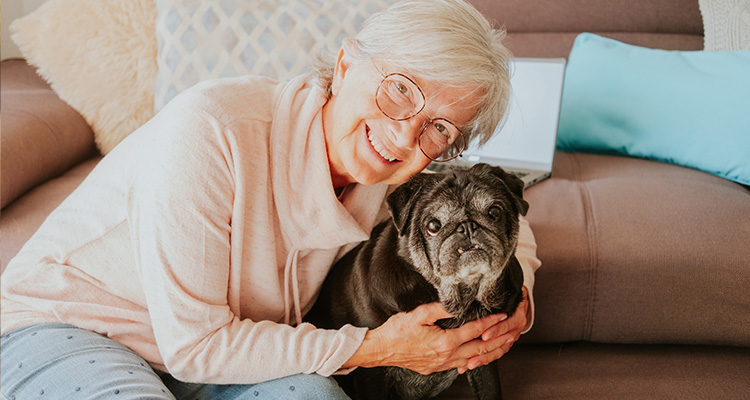
Am I ready to take care of the animal for the next ten to 15 years?
Anyone thinking of getting a dog should be absolutely clear that a dog, depending on the breed and size, can live up to 15 years or more. That is a very long time. Smaller dog breeds generally have a higher life expectancy than larger dogs. Therefore, pet ownership should be included in the life planning for the next ten to 15 years.
Of course, nobody knows exactly what the future holds. However, the willingness to take care of the animal, even when it gets older and sick or when one’s own life situation changes, should be present. Future dog owners should want their four-legged friend by their side in good times and bad – after all, a dog is a permanent family member.
Am I suitable for a dog?
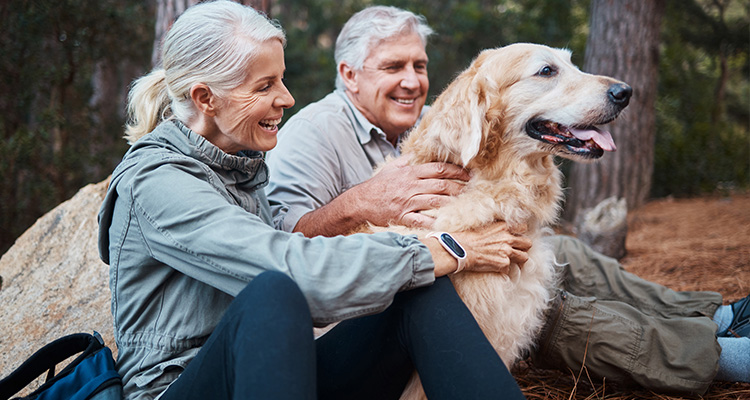
Does my professional and living situation allow for dog ownership?
Those who rent should obtain written consent from the landlord before bringing a dog home. Those planning future moves should also consider that finding an apartment with a dog can be significantly more difficult – especially in areas where the housing market is already competitive.
Those who own their own homes have it easier. However, questions still arise: Is the apartment or house large enough? Is there a garden, or would several floors need to be traversed to reach the apartment? Are all household members in agreement with bringing a dog into the home? Are there already other pets in the household that need to adjust to the new addition?
In addition, the professional situation is an important factor that should be considered. Leaving the dog alone all day while going to work is not an option. A dog is a pack animal, and being alone is not in its nature. However, through intensive and patient training, a dog can learn to cope with it.
Nevertheless, most dogs prefer not to be alone and let their owners leave the house with an uneasy feeling. There is no general rule on how long a dog can be left alone, but a rough guideline is that a dog should never be alone for more than four, maximum five hours. And not every day.
Those who work full-time and spend the entire day in the office should check beforehand if the dog is allowed to come to work or find an alternative dog sitter or caregiver who can take care of the dog during the day. But beware – the search takes a lot of time, and the care can cost a lot of money!
Shift work is not suitable for dog ownership. Dogs need regular daily routines and rituals to be balanced and content.
Do I have enough time to engage with the dog?
Those who are constantly in the office, on business trips, with friends, or on vacation should admit that their time is already quite stretched. There may not be enough time for a dog. Daily walks and playtime should be scheduled for at least two hours a day.
Depending on the breed and age of the dog, different requirements for the owner come into play. Particularly intelligent dogs like Border Collies or German Shepherds, for example, need not only physical but also mental stimulation.
Am I ready to adapt my leisure activities to the dog?
Not only should one consider the professional situation before bringing a dog into the home, but also one’s own leisure activities should be examined. Some time-consuming hobbies can pose challenges. For example, those who frequently stroll through the city center should be aware that large crowds and urban hustle can cause stress for the dog. Additionally, not all stores allow dogs, and the same goes for restaurants. On the other hand, hobbies like hiking or canoeing can be easily combined with a dog and may even be more enjoyable.
Tip: Create a list of your favorite leisure activities and then consider which ones are fully compatible with having a dog and which are not.
Can I truly afford a dog?
Anyone looking to get a dog should first get an overview of the associated costs and calculate the monthly expenses. Expect to budget around $200 per month. Regularly occurring costs include:
- Dog tax, varying by federal state
- Costs for preventive check-ups at the vet, such as vaccinations
- Costs for dog food and snacks, as well as accessories like toys or poop bags
- Liability insurance for the dog, varying by breed
- Health insurance or surgery insurance for the dog, varying by age, breed, and insurance
- Payment for a potentially needed dog-sitting service
In addition, the following cost factors should be considered, and dog owners should always have a financial cushion:
- Immediate vet or clinic costs in case of illness
- Payment for a caregiver in case of illness or during vacations
- At the beginning, there are also costs for initial equipment (around $200 to $300 ), dog training school, and the dog license
Am I in good health to keep a dog?
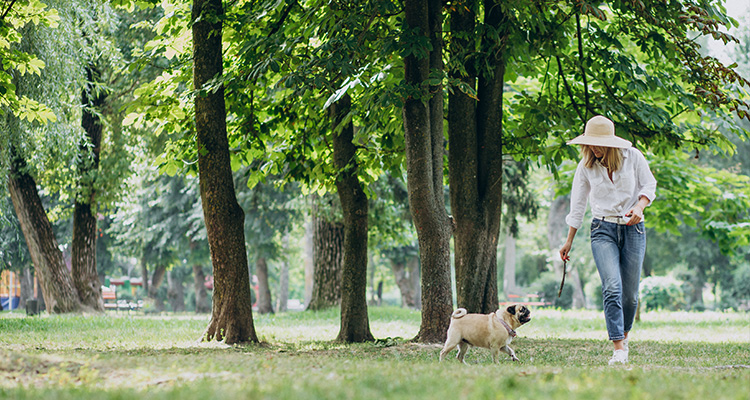
Every dog needs exercise and wants to play and frolic with fellow dogs from time to time. Walks in all weather conditions, early mornings, and late evenings are part of it – that’s why your health should also be in good shape. Do you suffer, for example, from a dog hair allergy or mobility issues? Then, a dog might not be the best choice.
Mental health should not be overlooked by prospective dog owners as well. Dogs often react very sensitively to the mood of their owners. Many dogs sense when their human companions are not doing well. While everyone has a bad day, your own dog should not serve as a guarantee for your peace of mind.
Do I have friends or family who can take care of the dog in case of emergency?
An accident, an illness, or a breakdown – sometimes things need to happen quickly. Is there someone in your family or circle of friends who can take in the dog in case you are unavailable for an extended period, such as being in the hospital or on a retreat?
Can I take the dog on vacation?
Do I have a nice “holiday accommodation” for the pet? If you enjoy traveling abroad and often go on trips, you need to think about how to organize and plan vacations with a dog: Is there a nearby dog beach or dog-friendly forest? Are pets allowed in the accommodation? What should be considered when entering a country? Does the dog need specific vaccinations?
If you don’t want to take the dog on vacation, you should have a nice “holiday accommodation” for the pet. Friends or relatives who already know the animal and perhaps see it regularly are the best choice. This makes cohabitation for the host family and guest dog more relaxed and easier. In case of emergency, pet boarding facilities or pet sitters can also help.
Can I live with dirt and disorder?
There’s no avoiding it: when a dog moves in, so do hair, dirt, and disorder. You need to be able to tolerate that. Meticulous cleanliness and order enthusiasts will find it challenging.
Dogs love to roll in mud or leaves. After a walk in bad weather, the dog brings dirt into the house – even meticulous cleaning of the dog’s paws cannot prevent it. Spring and fall bring hairy times – more vacuuming is required during shedding season.
Young dogs or bored animals may tend to chew on furniture or redecorate the house. Loose items are carried from one place to another, socks end up in the dog’s bed. Chew bones are often hidden under sofa cushions, and some males and protesting dogs may mark walls or upholstered furniture. All of these are possible changes that future dog owners need to cope with.
Where to Find Your New Canine Companion
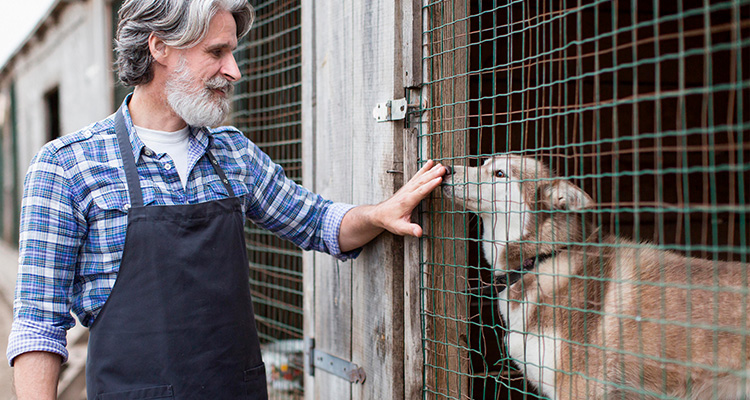
When it comes to adding a new dog to your family, you have two primary options for sourcing your new companion: purchasing a puppy from a breeder or adopting a puppy or adult dog from an animal shelter or rescue group.
Purchasing From a Breeder:
If you’re set on having a purebred puppy, opting for a responsible breeder is your best choice. Buying a purebred puppy online carries risks, as many online-sold puppies originate from puppy brokers or mills, leading to potential health or behavioral issues. A responsible breeder, on the contrary, prioritizes the well-being of their dogs and puppies. They don’t casually sell puppies with just a click. These breeders prefer engaging with potential puppy owners to ensure their pups are placed in responsible homes.
The American Kennel Club is a good starting point for finding reputable breeders, listing purebred dog breeders in good standing on its website. Whenever feasible, try to locate a breeder nearby so you can visit their home and interact with their adult dogs. Prospective puppy owners are advised to interview breeders, seeking indicators of responsible breeding practices and the health of the puppies. Key considerations when evaluating a breeder include:
- Participation in conformation dog shows or performance events with their dogs.
- Conducting breed-appropriate health testing on adult dogs before breeding, with available health testing paperwork.
- Providing some form of health guarantee for the puppies.
- Emphasizing breeding for good health and temperament.
- Producing a limited number of litters per year, indicating that puppies may not always be available.
- Allowing each female dog to have no more than one litter annually.
- Keeping puppies with their mother and siblings until at least 8 weeks of age (12 weeks for toy breeds).
Adopting From a Shelter or Rescue:
For those seeking a mixed breed puppy or a purebred/mixed breed adult dog, local animal shelters or rescue groups are excellent options. While information about the parents might be limited, shelters and rescue groups often have a variety of animals seeking new homes. Puppies are frequently available, and breed-specific rescue groups can connect you with purebred dogs. Popular breeds like Labs and golden retrievers may also be found in shelters. Adopting a dog not only brings joy to your family but also provides the satisfaction of saving a life and contributing to the reduction of homeless pet overpopulation.


